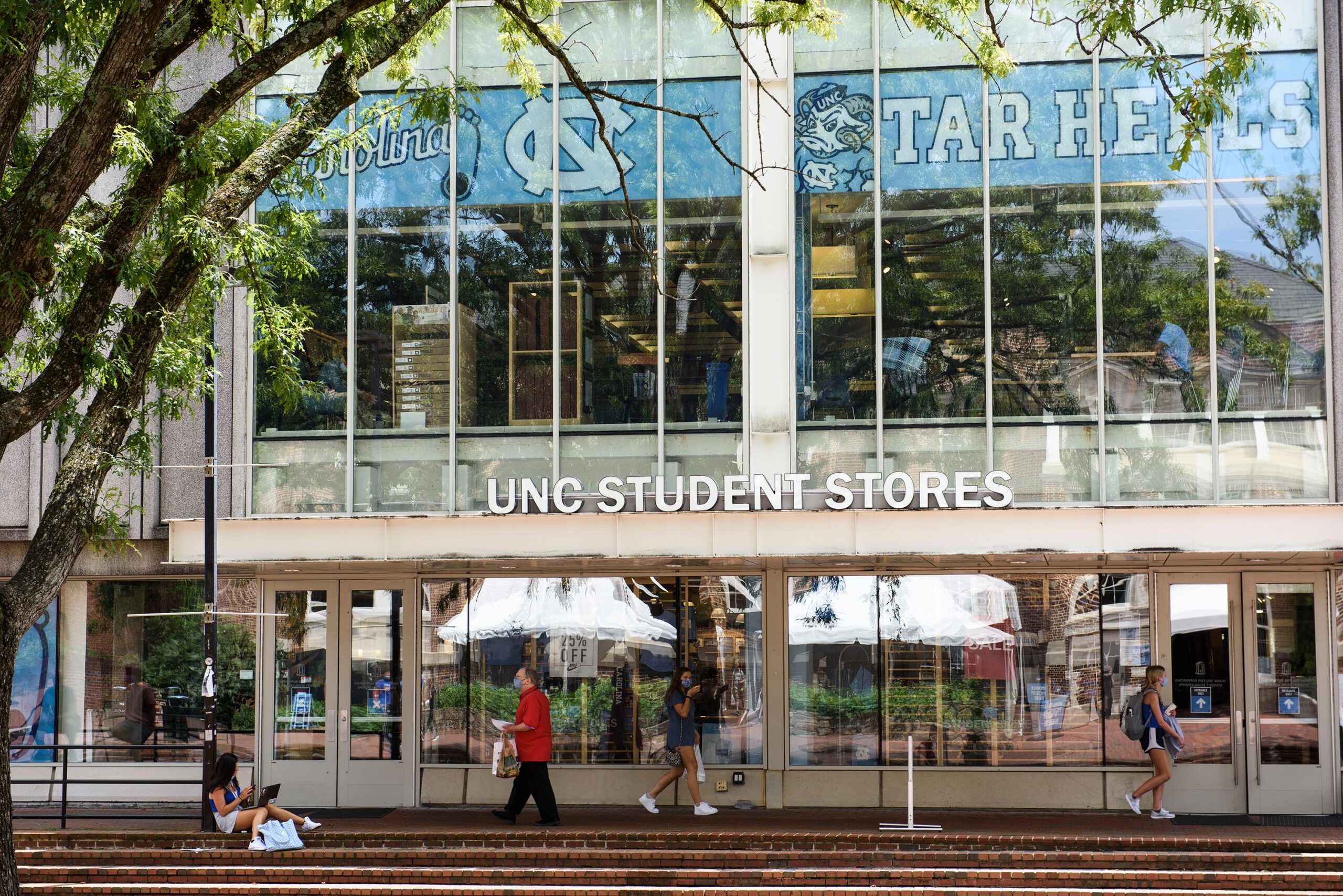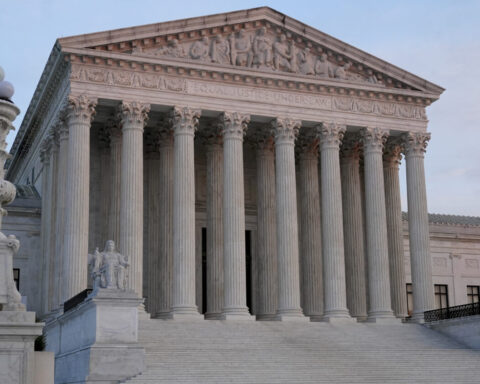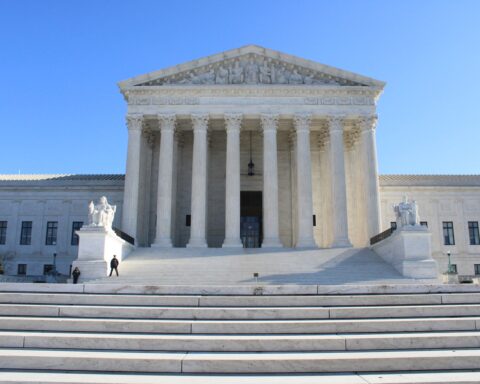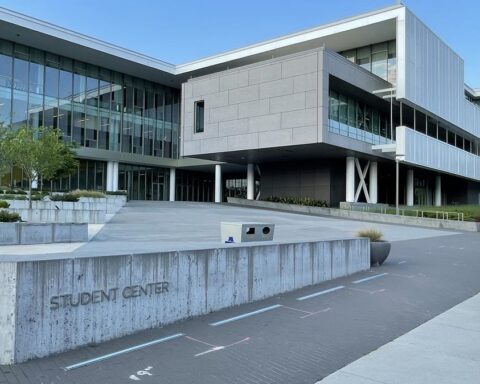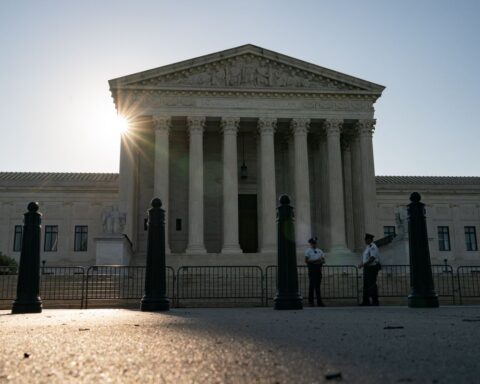The University of North Carolina and civil rights advocates urged the US Supreme Court on Monday to steer clear of a case designed to end racial affirmative action at state colleges and universities.
Lawyers for North Carolina, led by state Solicitor General Ryan Park, contend the challengers are trying to “short-circuit” the usual judicial process by asking the nine justices to hear the UNC dispute, along with a similar case against Harvard, even though a regional US appellate court has yet to rule on the state school dispute.
North Carolina also stressed that the Supreme Court has upheld the limited use of race in admissions to enrich campus diversity for more than four decades, most recently in 2016.
“The law in this area has been stable for decades,” North Carolina wrote. “And this stability has allowed the people themselves to decide the wisdom of race-conscious admissions policies. Any bid to overturn precedents that have engendered such significant reliance interests should proceed according to the ordinary appellate process. Respect for precedent demands nothing less.”
The school said it considers many dimensions in screening applicants to the flagship campus, including different life experiences and economic circumstances.
Race is “one factor among many,” state lawyers wrote, noting, “One continuing challenge is the admission and enrollment of underrepresented minorities, who are admitted at lower overall rates than their white and Asian American peers.”
The Supreme Court could announce as soon as mid-January whether to hear the pending cases. The potentially paired disputes, testing race-based admissions practices at private and public institutions, could tempt the conservative justices on the bench who have long demonstrated an interest in ending racial remedies in education.
A group called Students for Fair Admissions separately sued Harvard and UNC over their admissions policies in 2014. The Harvard lawsuit, which specifically claims that the Ivy League school discriminates against Asian American applicants as it boosts the chances of Blacks and Hispanics, has moved faster through the trial and appellate stage.
Harvard prevailed at both levels, and Students for Fair Admissions earlier this year petitioned the Supreme Court to review its case. The court asked the Department of Justice to weigh in, and last week DOJ recommended the justices deny the petition.
That Biden administration stance, supporting Harvard, reversed the approach of the Trump administration, which had sided with the SFFA challengers.
Admissions practices that take account of students’ race, among other criteria, were first upheld in 1978, in Regents of the University of California v. Bakke. The Supreme Court broadly reaffirmed that decision in the 2003 University of Michigan case of Grutter v. Bollinger.
Proponents of such practices say diversity enhances campus life and the educational mission, while opponents counter that any race-based screening constitutes unlawful discrimination.
Urging the high court to use the UNC case to overturn the 2003 precedent, Students for Fair Admissions argued in its petition that the court has wrongly “abandoned the principle of racial neutrality” and given “broad deference to university administrators to pursue a diversity interest that is far from compelling.” The SFFA group told the high court that its precedent has become “a license to engage in outright racial balancing.
A US district court judge in October ruled in favor of UNC, saying it had followed Supreme Court precedent to achieve its compelling interest in student diversity. The judge noted that an applicant’s race “appears to be less than or equally important to several other data points considered within a holistic process.”
The 4th US Circuit Court of Appeals would, under the normal process, hear the SFFA appeal sometime in 2022, and then the case could proceed to the justices for possible review.
Like the state team, the Lawyers’ Committee for Civil Rights Under Law, representing students in the North Carolina case, urged the justices to adhere to their usual process.
It pointed to the court’s prior recognition of the value of diversity to a university’s mission “as the training grounds for future leaders” and that the court had reaffirmed the constitutionality of racial affirmative action just five years ago in a case from the University of Texas at Austin.
Since 2016, the high court membership has evolved in a way that favors opponents of affirmative action, with three new appointees of former President Donald Trump.
Conservative activist Edward Blum, the leading sponsor of Harvard and UNC challenges, has had his eye on the Supreme Court and reversal of decades-old precedent from the time the lawsuits were filed seven years ago.
The case against Harvard was brought under Title VI of the 1964 Civil Rights Act, which prohibits schools receiving federal funds from discriminating based on race. The UNC lawsuit claims a violation of Title VI, as well as one based on the 14th Amendment’s equality guarantee covering state entities.
Blum has helped engineer numerous race-based legal challenges over the years, his most consequential being the case that led to the 2013 landmark Shelby County v. Holder that rolled back a major provision of the Voting Rights Act.
After the filings on behalf of UNC were submitted, SFFA told the justices it would quickly file a reply brief and asked that its request for a hearing before any appellate court judgment be considered at the justices’ private conference on January 7.
